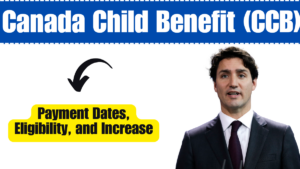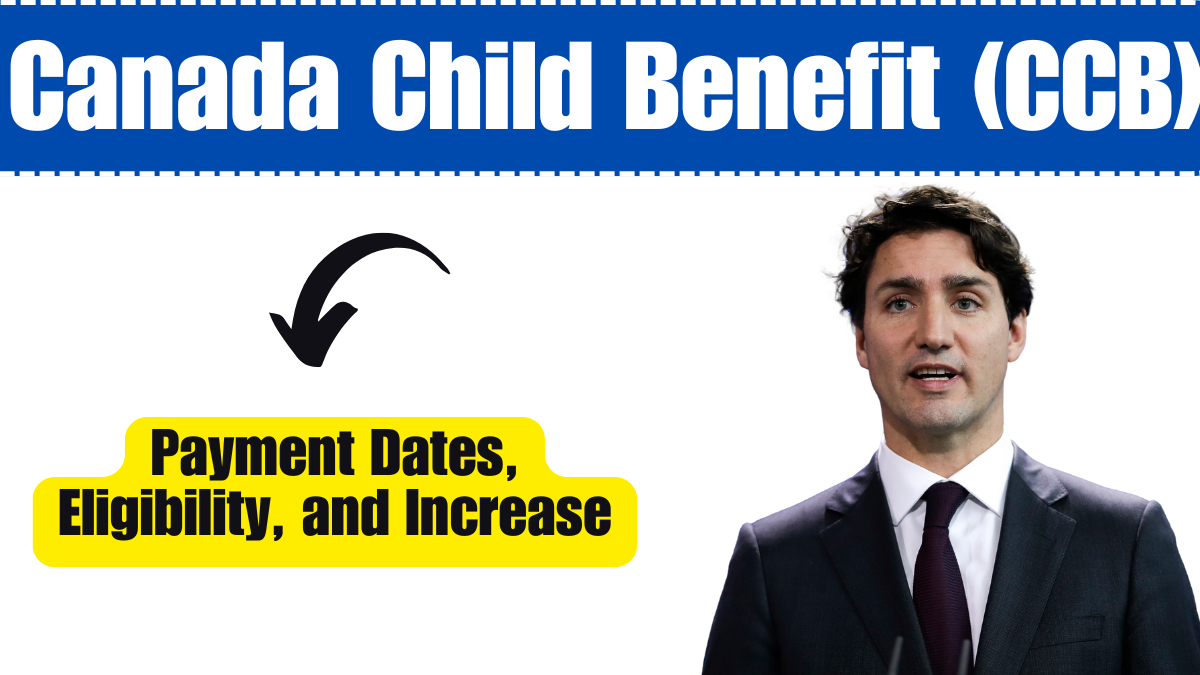The Canada Child Benefit (CCB) is a crucial tax-free financial support program for families with children under the age of 18. Managed by the Canada Revenue Agency (CRA), this benefit helps cover expenses related to raising children and is adjusted annually to keep up with inflation. With new payment rates and an updated schedule for 2025, eligible families are encouraged to stay informed to make the most of the benefit.

CCB Payment Dates for 2025
Here is the official Canada Child Benefit payment schedule for the year 2025. Payments are typically deposited on the following dates:
| Month | Payment Date |
|---|---|
| January | January 19, 2025 |
| February | February 20, 2025 |
| March | March 20, 2025 |
| April | April 19, 2025 |
| May | May 17, 2025 |
| June | June 20, 2025 |
| July | July 19, 2025 |
| August | August 20, 2025 |
| September | September 19, 2025 |
| October | October 18, 2025 |
| November | November 20, 2025 |
| December | December 19, 2025 |
Note: Payments are issued through direct deposit. If not received by the listed date, families should wait five business days before contacting CRA.
How Much Will You Receive in April 2025?
As of the 2024–2025 payment period, the CCB saw a 4.7% increase. Here’s how much families currently receive monthly:
| Age of Child | Annual Benefit (2024-25) | Monthly Payment |
|---|---|---|
| Under 6 years | $7,787 | $648 |
| 6 to 17 years | $6,570 | $547 |
Families approved for the Child Disability Benefit (CDB) also receive an additional annual amount, which increased from $3,322 to $3,411 starting July 2024.
Expected CCB Increase from July 2025
The Canada Child Benefit is set to increase again by 2.7% in July 2025 to account for rising inflation. The projected new amounts are:
| Age of Child | Annual Benefit (2025-26) | Monthly Payment |
|---|---|---|
| Under 6 years | $7,997 | $666 |
| 6 to 17 years | $6,748 | $562 |
These amounts will apply from July 2025 to June 2026.
Who Is Eligible for the CCB?
To receive the Canada Child Benefit, you must meet the following eligibility criteria:
-
Be a Canadian resident for tax purposes
-
Be the primary caregiver for a child under 18 years old
-
You and your spouse/partner must have filed your income tax return for 2023
-
Meet the income thresholds set by CRA
The CRA automatically reviews eligibility based on annual tax returns. If your income or family structure changes, your benefit may be adjusted accordingly.
MUST READ: Canada Housing Benefit: Claim Your $500 Payment – April 2025 Guide
Additional Child Benefits by Province
In addition to the federal CCB, many provinces and territories offer additional benefits for families:
British Columbia (BC) Family Benefit
-
$2,188 for the first child
-
$1,375 for the second child
-
$1,125 for each additional child
-
Bonus top-up for six months to support eligible families
Ontario Child Benefit (OCB)
-
Up to $1,607 per child annually for low-income households
Alberta Child and Family Benefit (ACFB)
-
$1,330 for the first child
-
$665 for each additional child
-
Payments vary based on income
For specific eligibility and application details, visit your provincial government’s official website.
How to Apply for the Canada Child Benefit (CCB)
Families can apply for the CCB in several ways:
-
Online via the CRA’s My Account portal
-
At Birth through the Newborn Registration Service
-
By Mail using Form RC66 (Canada Child Benefits Application)
Ensure that you submit all supporting documents, including proof of birth and residency, to prevent delays.
Conclusion
The Canada Child Benefit (CCB) continues to provide substantial financial support to eligible families, helping to manage the growing costs of raising children. With regular monthly payments, annual increases adjusted for inflation, and supplementary provincial programs, the CCB plays a central role in improving the well-being of Canadian children.
If you’re eligible, be sure to apply, track payment dates, and keep your tax filings up to date. These steps will ensure you receive the maximum benefit available to your family.
Click here to know more.
